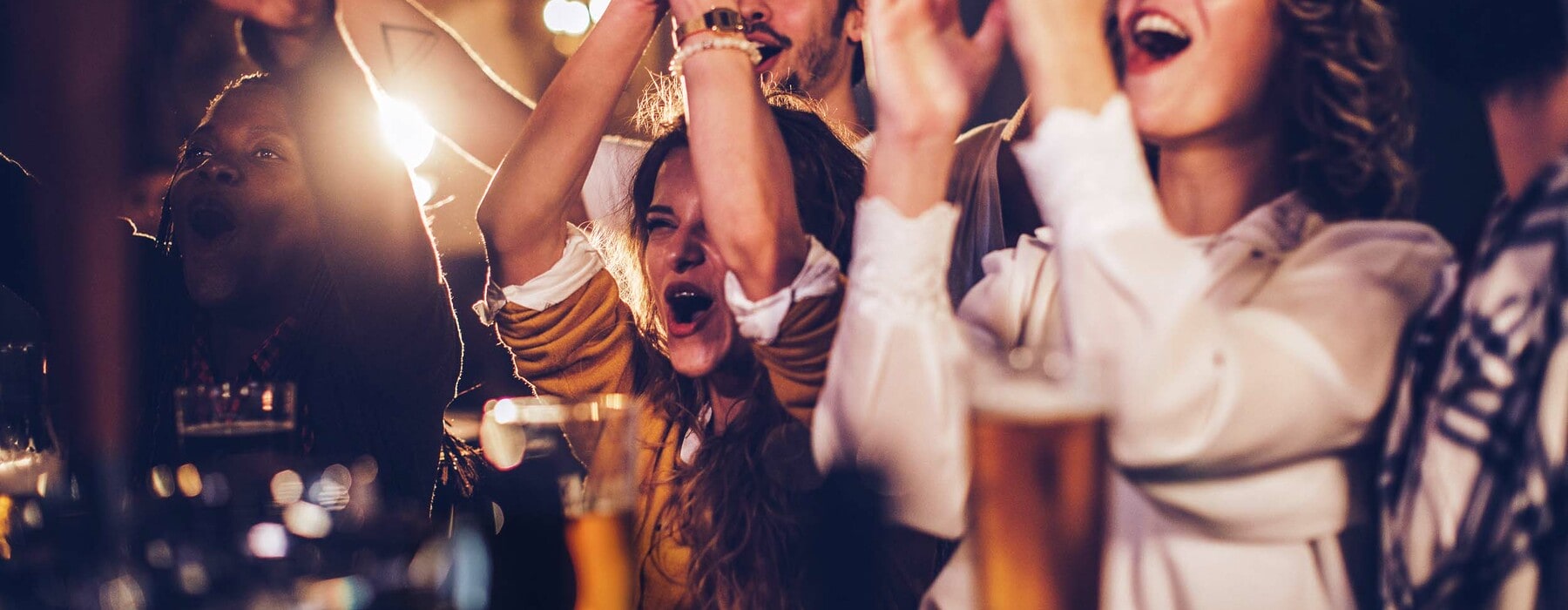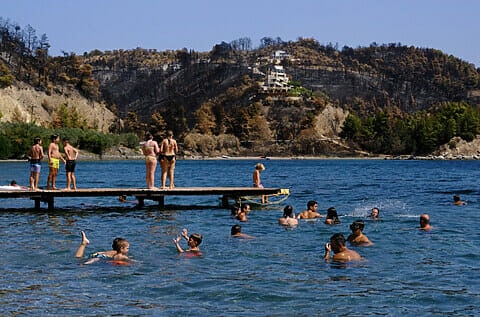Is the honeymoon phase finally over for sport and alcohol’s long-term relationship?
I’m sure I am not the only one who has recently been thinking a lot about alcohol, or rather their consumption of it. I wouldn’t class myself as a heavy drinker, but nor am I just a social one… I’d say I’m a regular drinker. I think nothing of at least a couple a night at home while preparing dinner, or, at the moment, a few with lunch in the European sun. Whose company I’m in often dictates how much more I’ll have, and in Covid times, it became a way to get through the long lockdown evenings, then, as a way to celebrate getting back together with family, friends and colleagues. It undoubtedly has contributed to weight gain and a sluggish feeling.
We are all entitled to consider our own drinking habits in private, or with help, if required. But if the reaction to Paddy Gower’s recent TV show is a gauge, then it is clearly becoming an increasingly hot-button topic in our wider communities and should very much be at the front of mind for one of my communities: the world of sport. If those Facebook status updates were still a thing, it would be fair to say “it’s complicated” would very much fit the bill when it comes to the relationship between sport and alcohol.
The issues between this increasingly awkward pairing are numerous, and it’s the subject of a myriad of studies and research both from within the industry and in academia. From the health of elite athletes and the link with exacerbating concussion and head injuries to abuse at grassroots level and the cultural associations, those studies have few positive answers.
Globally, booze companies spend more than NZD$1.2 billion a year in the sports industry through sponsorship of teams, events and advertising. I’ve always taken a pragmatic approach to sport sponsorship. When there’s so much money involved at the top end of every game, there’s no such thing as a perfect sponsor – it’s hard to be too puritanical about big booze when big bank is the next option. Their money keeps some sports afloat and, done cleverly, can add value; netball should tap into the wine-drinking mums, Wimbledon and Pimm’s go hand in hand, and it’s hard to argue about the success of the beer-sponsored “Catch A Million” competition at the cricket a few years ago… even if there was some collateral damage as punters attempted to take a one-handed catch.
Alcohol consumption has been deeply woven into the fabric of New Zealand sport for a long time, but when there is such a saturation of coverage, how much longer should we have it poured down our throats?
When any issue like this is discussed, the focus always goes to rugby. Sometimes, NZ Rugby has to answer to things that it shouldn’t really have to, but, in this instance, if sport is a microcosm of society, then the prism we view it through is rugby. Beer and rugby go hand in hand, but should they? Just because it’s always been the case doesn’t mean it has to stay that way, and rugby could take the lead in developing a new approach. In trying to show that rugby is an inclusive and welcoming sport for all, a change in attitude around its reliance on alcohol could be another step for rugby to become exactly that.
There are examples overseas that although not perfect could be looked to as starting points for change. Fans in UK football stadiums are allowed to drink only in the concourse area, not in their seats. Stade de France serves only non-alcoholic beer, as does Barcelona’s 90,000-capacity Camp Nou, and the home of Welsh rugby, Principality Stadium, has dry zones. If you’ve ever seen French rugby fans or Barcelona football supporters in action, they make a pretty good case for enjoying the game and the occasion without a drop.
But I’d bet my house with its rather substantial mortgage that there would be an outcry in New Zealand if any of those things happened at our big stadiums. Although “family zones”, or dry areas, are not uncommon at cricket matches, the idea of non-alcoholic beer would be enough to make All Blacks of yesteryear turn in their graves.
Added to that, alcohol is a massive source of revenue in the very difficult business of running a stadium, and breweries pay big bucks for exclusive pourage rights at some venues.
Although I can already hear the cries of “PC gone mad” (seemingly the refrain against anything new) as the talkback lines light up and Twitter feeds go mad, it’s time someone in New Zealand sport made some brave moves in this area. Outside of offering Coke and water as the alternatives, non-alcoholic drinks must be a staple on the menu at stadiums. Clubs need to consider other ways to get people into their facilities on the weekend without “beers with the boys” being the key driver, and the big business of sport surely has to re-examine its over-reliance on alcohol sponsorship. It may also be on us as fans and consumers to put our hands up and say we are ready to make the change, that different options should be the norm and that, yes, every so often we can just watch a game without.
I’m in no way advocating for a ban – far from it – but the expression “rugby, racing and beer” belongs to a bygone era, and it’s long past time we accepted that.








